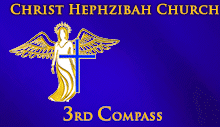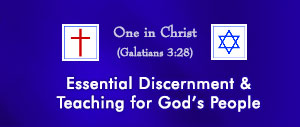This year Shavuot/Pentecost is on the same day as Loving Day, a commemoration of the Loving vs The State of Virginia, U.S. Supreme Court ruling that determined anti-interracial marriage laws (anti-miscegenation laws) in many states were unconstitutional[1.1]. That ruling in 1967 was a rare case when all nine supreme court justices agreed unanimously, though, in this case, the correct ruling is obvious if one’s mind is not darkened by bigotry and racism. It was a ruling correct and righteous by God, and I find it interesting the court case was made by a couple whose surname was Loving (Richard and Mildred Loving; Richard was a white man, while Mildred was a black woman).
I see the Lovings’ surname as no coincidence in this historical case, because I have witnessed
God’s predestiny in my own and other peoples’ lives. God had Richard Loving’s surname come through generations to end up as the Loving couple to determine proper marriage law – race or ethnicity cannot prevent a couple’s marriage and so the State cannot infringe on the right to marry whom you wish.
But what does Loving Day have to do with God’s holiday,
Shavuot, which means Weeks because God said it should be observed seven weeks after the offering of First Fruits during Pesach/Passover
(Leviticus/Vayikra 23:9-16; see Shavuot in The Lord’s Holidays for more about Shavuot). That amounts to 50 days, which is why the church calls this holiday Pentecost from the Greek meaning “50th Day.” However, the church’s Pentecost and Judaism’s Shavuot have diverged much in meaning and timing because the sects took different paths and spiritual focuses.
For the church, Pentecost is about celebrating God giving the Holy Spirit to Christians in completeness. This happened on Shavuot (Pentecost) for Christ’s disciples in Acts 2, which was some days after Christ returned to heaven after being resurrected during Pesach/Passover Week. But for Jews, Shavuot is more about the giving of the Law of Moses or Torah at Mount Sinai, though God never made the Torah a focus for Shavuot in scripture. It is a tradition that likely came from Jewish teachers long after the Jewish exile in Babylon.
Because of that and because the Old Law is superseded by the Laws of Christ and the New Covenant, I do not give attention to the Torah during Shavuot, even though the Law of Moses was given at Sinai around the same time that Shavuot should be observed. Overly religious Jews would say the timing matches exactly, but there is no proof of that in the Bible or otherwise
(see Shavuot/Pentecost - Do You Have Proper Fruits To Honor God? and Shavuot in God's Holidays for more about right and wrong focuses on Shavuot/Pentecost).
And so today, Judaism is rigidly devout to the Old Law during Shavuot and even made it a tradition to have an all-night Torah study session on Shavuot Eve[1.3]. This rigidness is not only in how Jews see their identity with the Torah, but also in the Law itself and that both Jewish identity and the Torah are extremely outdated, not unlike anti-miscegenation laws that prevent interracial marriages.
Why is that? The Torah prohibits marriage to anyone of foreign culture or nationality (Deuteronomy/Devarim 7:3), that is, to any non-Hebrew, because marriage with non-Jewish people would make God’s people worship other gods and so break the first of the Ten Commandments to have no other gods and sin in idolatry (Deuteronomy/Devarim 7:4; Exodus/Shemot 20:3; Deuteronomy/Devarim 5:7). This was an important point of obedience to the Torah after God’s judgment on His people finished in Babylon and Persia. When the Jews returned to the Holy Land and rebuilt the temple in Jerusalem, Ezra made the people leave mixed marriages (Ezra 9:1-10:44).
Is it what's important today? Yes, if you live by the Torah as Judaism does, because it is still in effect as God originally stated it. But it is also a curse to all who live by it because no Jew can fulfill the Old Law as God enacted it. And so God marked the Torah outdated when He came as Christ to supersede it with new laws, but because Judaism rejected this, they stubbornly cling to the Old Law, but not only to Torah, but to corrupted interpretations of it, and so Judaism has multiplied guilt upon herself through the millennia because of the curses of the Torah. It is for good reason that God had Hamas interrupt the reading of the Torah on Simchat Torah (October 7th, 2024), a Jewish holiday for exalting the Old Law.
Simchat Torah is not a Biblical holiday, and so I do not recognize it. October 7th was actually Shemini Atzeret
(The 8th Day of Sukkot/Tabernacles; see Sukkot in The Lord's Holidays for more), which the Lord led me to celebrate His renewal after hardship because of sin. So while I was celebrating and thanking God for His blessings of renewal and hope despite our sins, Israel was horrifically attacked and prevented from exalting in the Torah, which showed God was judging the sins of Judaism and not bringing renewal for them
(for the proof, see The significance of Israel under attack on Shemini Atzeret 2023).
The identities of Jews are so tightly bound to the Torah, that getting rid of it is like suicide. They cannot see themselves as anything other than Jewish chained to the Old Law, which includes much that is far outdated and even immoral by God’s new laws, just like anti-interracial marriage laws are outdated and immoral. The Torah was right for the time and purposes it was given – to keep God’s people holy and separate from other peoples and their sinful ways for the lifestyle of ages past.
To save themselves, Israel and Judaism need to unchain themselves and their identities from the Torah and the traditions of Judaism that God did not enact. Instead, they need to see themselves as the People of God in Christ do – a holy people of God but unshackled from rigid and antiquated law. Judaism needs to abolish old and prejudiced ways of thinking, like Loving vs Virginia abolished anti-miscegenation laws.
So on this Shavuot, when Judaism continues to fervently exalt in the Torah, I pray they remove the dark veils from their eyes and identify, not as a people of the Torah and Jewish tradition, but identify as a People of God with God as He truly is today, One In Christ, just as all peoples who come to God through haMashiach, the Messiah, are One People In Christ with Judaism (Romans 10:12-13; 1 Corinthians 12:12-26; Galatians 3:26-29; Ephesians 2:11-22, 3:6; Colossians 3:11; 1 Peter 2:9-10; also Romans 12:4-5); For the ancient Hebrews are the root and cultivated olive tree, and we who were bought by Christ are ingrafted branches and adopted into the holy people of God, yet still, we are all now of the same tree.
What Judaism needs to do is to go much farther back to her roots in the ancient Hebrews and prune off the old, diseased, and withered olive branches that prevent them from growing any further towards God and what is right. Those withered branches are what Jewish Halacha (Jewish teaching and law outside of scripture) brought to God’s cultivated olive tree, and it is ironic that on Shavuot, Jews recite morning brachas or prayers for blessings, believing they should be said upon waking up, and one bracha ends in “… matir asurim” or “who frees the bound”[1.3].
How lamentable my brethren in Judaism do not accept what God has done to free them and wake them up from such a long slumber. May Judaism love what God had done and continues to do in Mashiach Yeshua on this Shavuot and Loving Day, so that her branches would shoot out again and grow towards the harvest of eternal life. Amen.
For more about the alignment of Jewish Shavuot and Christian Pentecost,
References
[1.1] "Loving Day". Wikipedia. Retrieved 2024 Jun. 11.
<https://en.wikipedia.org/wiki/Loving_Day>
[1.2] "Loving v. Virginia". Wikipedia. Retrieved 2024 Jun. 11.
<https://en.wikipedia.org/wiki/Loving_v._Virginia>
[1.3] Emmett. "What Makes Shavuot Different This Year?" JWG Judaica and Dead Sea Cosmetics. 2024 Jun. 9. Retrieved 2024 Jun. 11.
<https://blog.judaicawebstore.com/what-makes-shavuot-different-this-year>


